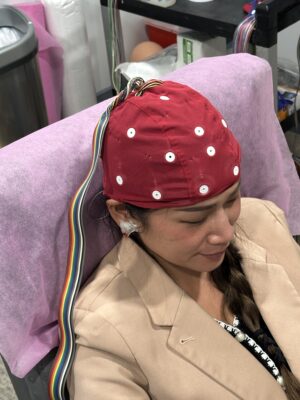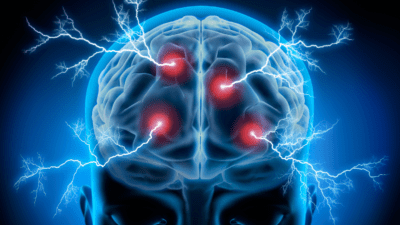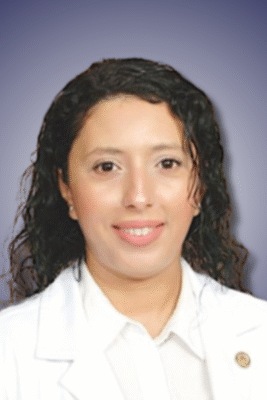
Esther L. Misdraji, MS, PsyD, QEEG-Diplomat
NeuropsycholoGY / Clinical PSYCHOLOGY
Dr. Esther L. Misdraji is an accomplished clinical neuropsychologist/psychologist with extensive experience in the field of head injury. Her career is devoted to unraveling the complexities of the human mind and behavior, providing insights into optimizing cognitive and emotional well-being. Dr. Misdraji's expertise has positively impacted countless lives, making her a highly respected professional in her field.
ESTHER L. MISDRAJI, MS, PSYD, QEEG-DIPLOMAT
EDUCATION
PsyD: Doctor of Psychology – Clinical Psychology, Neuropsychology, Carlos Albizu University, Doral, FL
MS: General Psychology, Carlos Albizu University, Doral, FL
BA: Music Education, University of Miami, Coral Gables, FL
Internship: Neuropsychology, Edith Nourse Rogers Memorial Veterans Hospital, Bedford, MA
Fellowship: Neuropsychology/Geropsychology, Miami VA Healthcare Systems, Miami, FL
Teaching Experience
- Adjunct Professor, Behavioral Neuroscience, Nova Southeastern University, Center for Psychological Studies, Davie, FL
- Adjunct Professor, Objective Personality Testing, Carlos Albizu University, Miami, FL
- Adjunct Professor, Personality Theories, Nova Southeastern University, Farquhar College of Arts and Science, Davie, FL
Languages
English
Neuropsychology and Head Trauma
Understanding the Impact
According to the American Psychological Association, Clinical Neuropsychology is a specialty field within clinical psychology dedicated to understanding the relationships between the brain and behavior, particularly as these relationships can be applied to diagnosing brain disorders, assessing cognitive and behavioral functioning, and designing effective treatment. Source: https://www.apa.org
Head trauma can have significant effects on cognitive and psychological well-being. The field of neuropsychology focuses on the relationship between the brain and behavior, exploring how brain function affects mental, emotional, and behavioral processes.
One area where neuropsychology is particularly useful is understanding head trauma’s consequences. Head trauma is any injury to the head that damages the brain and can occur due to sports-related injuries, falls, motor vehicle accidents, or physical assaults.
Neuropsychological assessments are crucial in evaluating head trauma’s cognitive and behavioral effects, helping identify specific areas of impairment and developing tailored treatment plans. One of the most common consequences of head trauma is a concussion. Still, the cognitive and behavioral consequences can be more severe and long-lasting in severe head trauma, such as moderate to severe traumatic brain injuries.
Neuropsychologists play a crucial role in assessing the extent of brain damage and its impact on various cognitive domains, identifying cognitive deficits, emotional disturbances, and changes in behavior resulting from the injury.
Neuropsychology assists in understanding the mechanisms underlying head trauma and its effects on the brain, exploring the complex interplay between neurobiological factors and psychological processes.
Neuropsychologists work with other healthcare professionals to provide comprehensive care to individuals with head trauma, designing targeted rehabilitation programs that address specific cognitive deficits, promote adaptive strategies, and facilitate optimal functioning.
Neuropsychology at Radius TBI plays a crucial role in understanding the impact of head trauma on brain function, identifying cognitive and behavioral changes resulting from head trauma, and contributing to the development of effective treatment and rehabilitation strategies.

QEEG Brain Map Interpretation
In the world of neuroscience, one of the advanced tools used to understand brain function is the Quantitative Electroencephalogram (QEEG), often referred to as brain mapping. But who interprets these intricate brain maps, and why

Meet Our No.1 Best Neuropsychologist in Tampa, FL Location
At Radius TBI, we pride ourselves on providing exceptional care for individuals suffering from traumatic brain injuries (TBI) and concussions. Our integrated medical team in Tampa, FL, includes some of the most respected and experienced

Sleep Disturbance
Did you know? Dealing with a traumatic brain injury (TBI) often means navigating a range of complications, one of the most prevalent being sleep disturbances. Surprisingly, 30-70% of individuals with a TBI experience some form

Understanding Routine EEG, QEEG, and Ambulatory EEG Tests
EEG, QEEG, and Ambulatory EEG are distinct forms of electroencephalography, each serving unique purposes in the diagnosis and monitoring of neurological conditions.
Fort Lauderdale Medical Team
Radius TBI comprises a multidisciplinary medical team of neurology, neuropsychology, audiology, neuro-ophthalmology, psychology, and physical therapy dedicated to providing outstanding medical care and improving the quality of life in patients suffering from traumatic brain injury (TBI) and concussion.





